Anal Fissure: Causes, Symptoms & Easy Healing Tips

Have you ever felt a sharp pain or burning while pooping? You might have an anal fissure, a small cut or tear in the thin, delicate skin around your anus.
What Is an Anal Fissure?
An anal fissure is like a paper cut in the lining of the anus. This thin skin is very sensitive, so even a tiny crack can cause surprising pain.
Fissures often happen when you strain during bowel movements, pass hard or large stools or have ongoing diarrhea.
Though they can be painful, most anal fissures are harmless and heal within a few weeks if you take care of them.
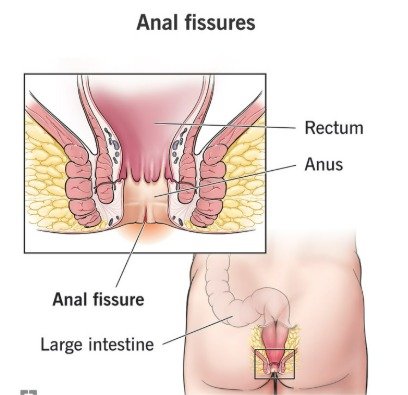
Common Symptoms of Anal Fissure
- Sharp pain during and after pooping sometimes lasts minutes to hours.
- Burning or itching near the anus
- Bright red blood on toilet paper or in the bowl
If you’re seeing fresh blood, dealing with burning pain while pooping and feeling a tender line near the anal opening, you’re likely dealing with a fissure not hemorrhoids.
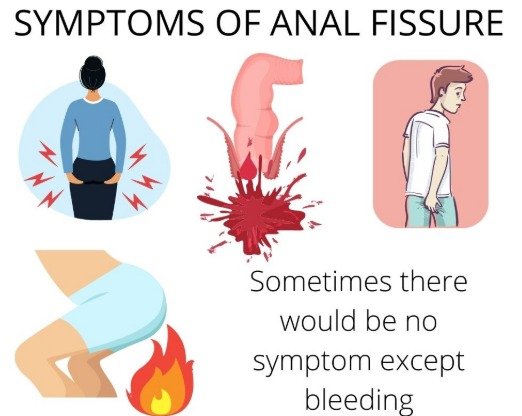
What Causes Anal Fissures?
- Constipation and passing hard or large stools.
- Chronic diarrhea which irritates the area.
- Straining during bowel movements.
- Childbirth (especially vaginal delivery).
- Anal sex or local injury
Sometimes, fissures can also happen because of conditions like Crohn’s disease, infections, or other inflammatory bowel diseases.
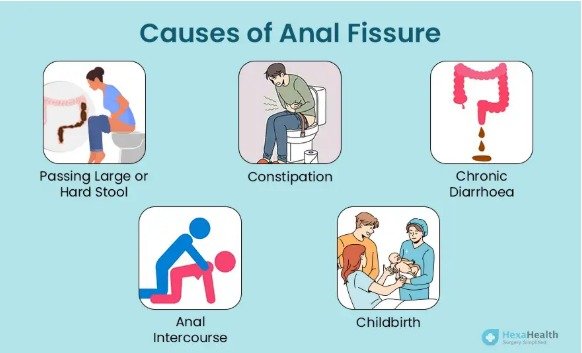
How to Treat an Anal Fissure at Home
Most fissures get better on their own with some self‑care:
- Warm sitz baths.
Sit in warm (not hot) water for 10–15 minutes, 2–3 times daily, especially after bowel movements. This relaxes the muscles and helps healing.
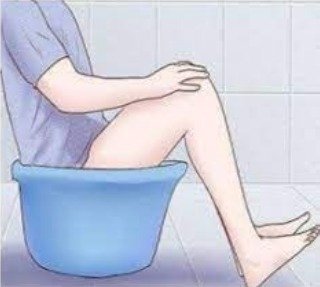
- Keep stools soft:
* Drink enough water (at least 6–8 glasses daily).
* Eat fiber‑rich foods: fruits, vegetables, oats, whole grains.
* Consider fiber supplements or stool softeners if you’re often constipated
- Use gentle creams.
Petroleum jelly can soothe the area. Your doctor may also suggest special medicated creams to reduce pain or help relax the muscles.
- Practice gentle cleaning
Use soft, unscented wipes or rinse with lukewarm water. Avoid scrubbing or using harsh soaps.
When to See a Doctor
If your fissure:
- Lasts more than 6–8 weeks (called a chronic fissure).
- Keep coming back.
- Causes severe pain or heavy bleeding
Then it’s time to see a doctor.
Doctors might recommend:
- Prescription creams (like nitroglycerin or calcium channel blockers) to relax the anal muscles and improve blood flow.
- Botox injections to reduce muscle spasm.
Minor surgery (lateral internal sphincterotomy) if nothing else helps — this usually heals the fissure and gives long‑term relief.

Tips to Prevent Anal Fissures
- Stay hydrated every day.
- Eat plenty of fiber to keep stools soft.
- Avoid straining, don’t delay bathroom visits.
- Be gentle when cleaning after pooping.
These habits don’t just prevent fissures, but also help keep your digestive system healthier overall.
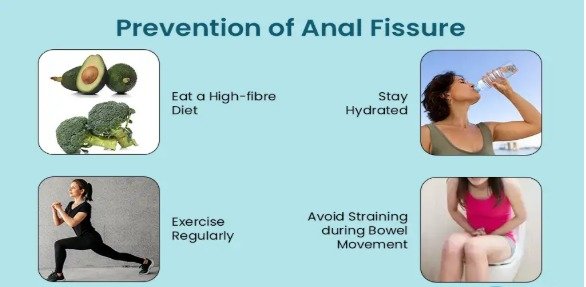
Conclusion:
Anal fissures are common and painful, but they usually heal with simple home care—warm sitz baths, soft poop, and patience. If the problem sticks around or gets worse, talk to a doctor about topical treatments, Botox, or surgery.
Click here for Download PDF File : Anal Fissure: Causes, Symptoms & Easy Healing Tips
